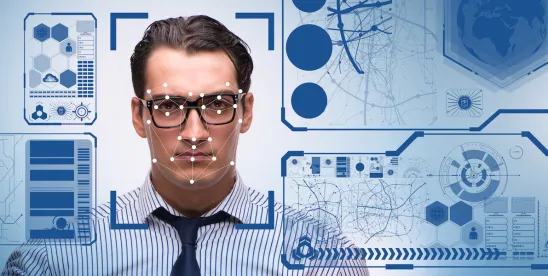Now nearly a year on from its 2023 Notice of Inquiry, the U.S. Copyright Office has now released Part 1 of its findings and recommendations on the legal and policy issues at the juncture between artificial intelligence (AI) and copyright. The topic? Digital replicas.
The Report defines a digital replica as “a video, image, or audio recording that has been digitally created or manipulated to realistically but falsely depict an individual,” either authorized or not, perhaps colloquially known as “deepfakes.” The Report identifies three key areas of harm associated with the unauthorized use of digital replicas: sexually explicit deepfake imagery, the perpetuation of fraudulent activities, and greater disguise of misinformation on political and news platforms.
Part I of the Report addresses the existing legal frameworks to protect against these harms, but digital replicas fall into several buckets, including intellectual property, privacy, consumer protection, unfair competition, and fraud. From a state law perspective, the Report identifies the right to privacy and right to publicity, many of which are often too narrowly written to cover all types of digital replica uses. Several states such as Tennessee, Louisiana, and New York have passed or amended laws to target the use of digital replicas specifically, each with their respective exemptions. The Office finds existing federal laws equally deficient to protect individuals fully from the possible harms of digital replicas, finding shortcomings in the Copyright Act, the Federal Trade Commission Act, the Lanham Act, and the Federal Communications Commission’s Communications Act – “new federal legislation is urgently needed,” the Report states.
As summarized by the Office, two congressional proposals to-date broadly address the unauthorized use of digital replicas: “the No Artificial Intelligence Fake Replicas and Unauthorized Duplications (“NO AI FRAUD”) Act” and “the Nurture Originals, Foster Art, and Keep Entertainment Safe (“NO FAKES”) Act.” The Office also found need and support for a new digital replica right, identifying nine key aspects:
- the definition of a digital replica,
- persons protected,
- the term of protection,
- prohibited acts,
- secondary liability,
- licenses and assignments,
- accommodation of First Amendment concerns,
- remedies, and
- interaction with state laws.
Commentors to the 2023 Notice of Inquiry provided various levels of input to each aspect, some receiving greater levels of unanimity than others. The Office itself advocates for a federal right protecting all individuals with a lifetime duration “from the knowing distribution of unauthorized digital replicas”; a right that is licensable but not assignable, subject to guardrails, offering remedies such as monetary damages and injunctive relief, applying “traditional rules of secondary liability” but “with an appropriately conditioned safe harbor” for online service providers, containing explicit First Amendment accommodations and fully preempting state laws.
The Report also presented the Office’s view on concerns over whether § 114(b) of the Copyright Act, which permits imitation or simulation of sounds in the context of a sound recording copyright, conflicts with state laws protecting against the unauthorized use of digital replicas in sound recordings. The Report indicates that any concerns are “misplaced,” as § 114(b) does not preempt state laws, and serves a different policy goal, although federal clarification wouldn’t go amiss.
Lastly, the Report addresses concerns about the potential for AI to harm the market for human creators’ works, but the Office recommended against special protection for “style” as protected subject matter, suggesting that existing protections are sufficient.
Time will tell how state and federal legislators will incorporate these recommendations, with further parts to the Report expected in the future. This Report is one of many AI-related analyses and legislative proposals produced by federal agencies in this “AI era.”





 />i
/>i
